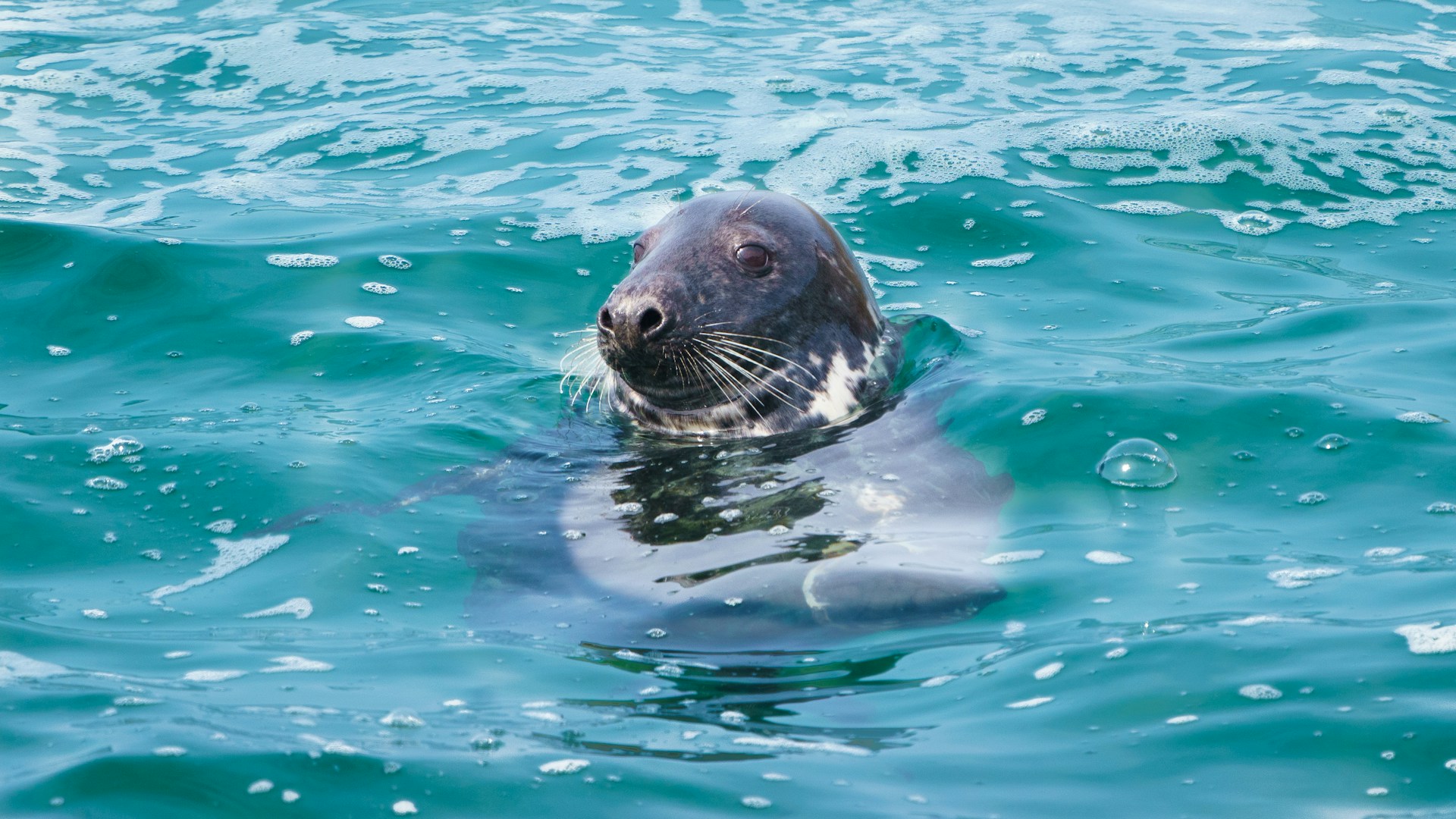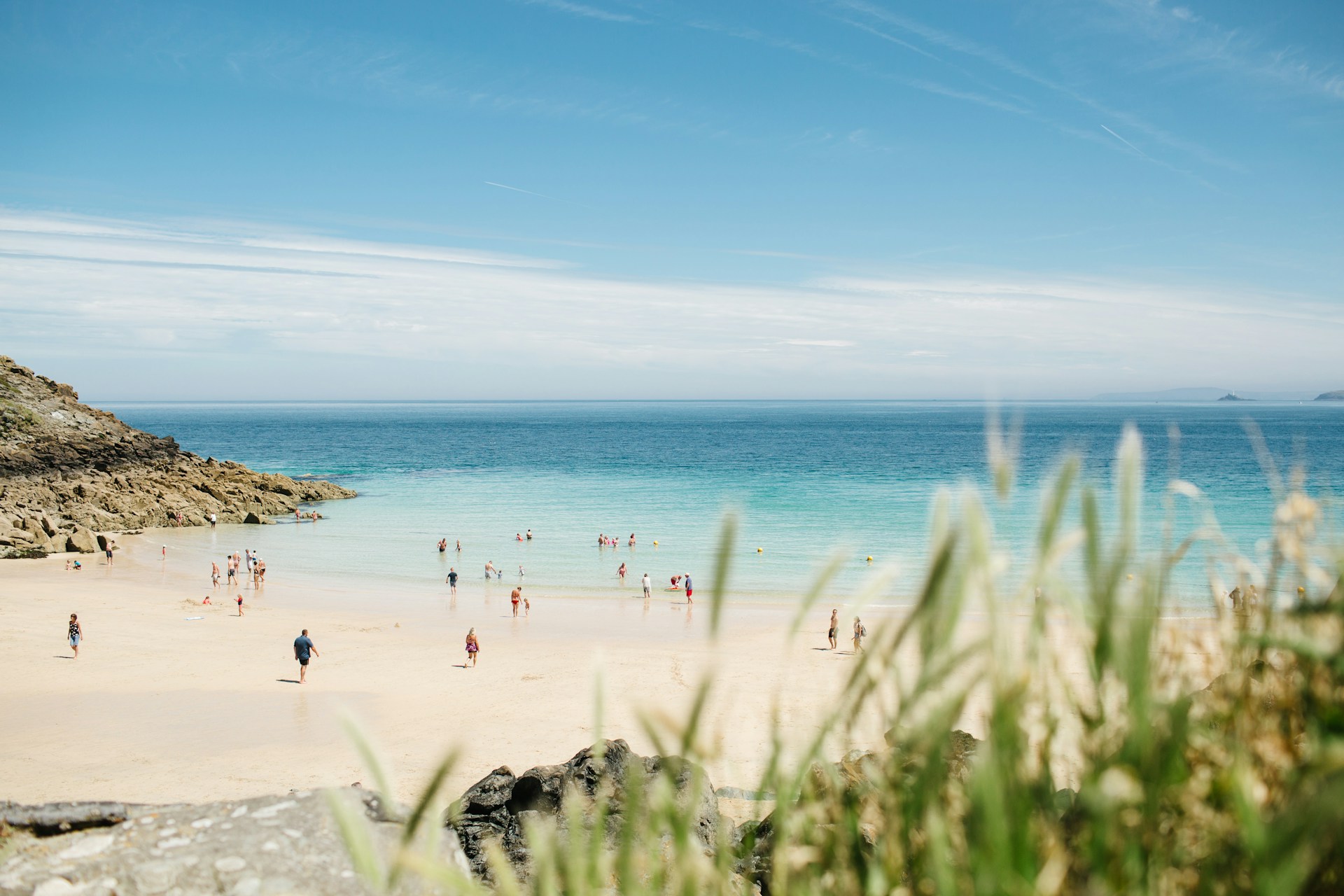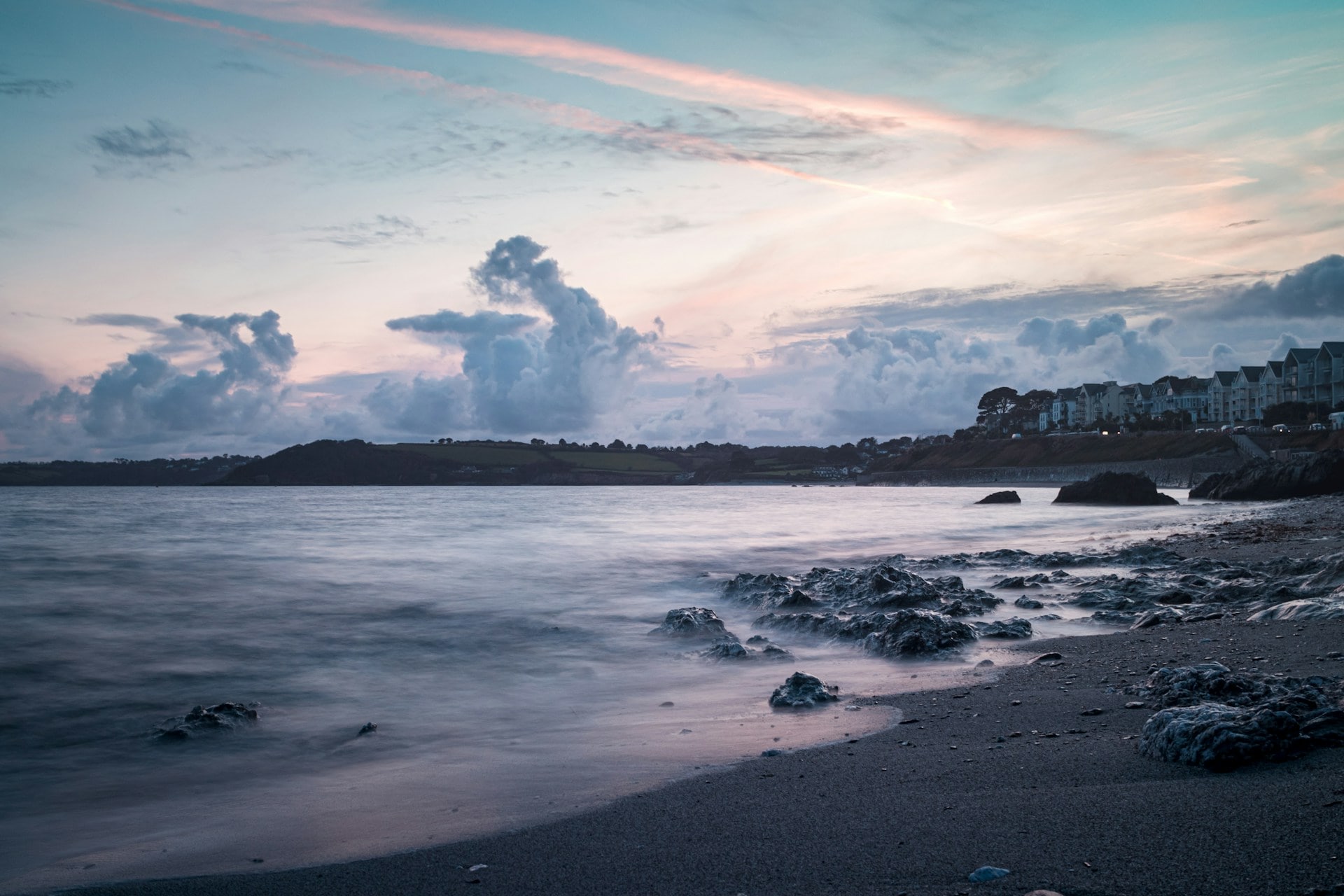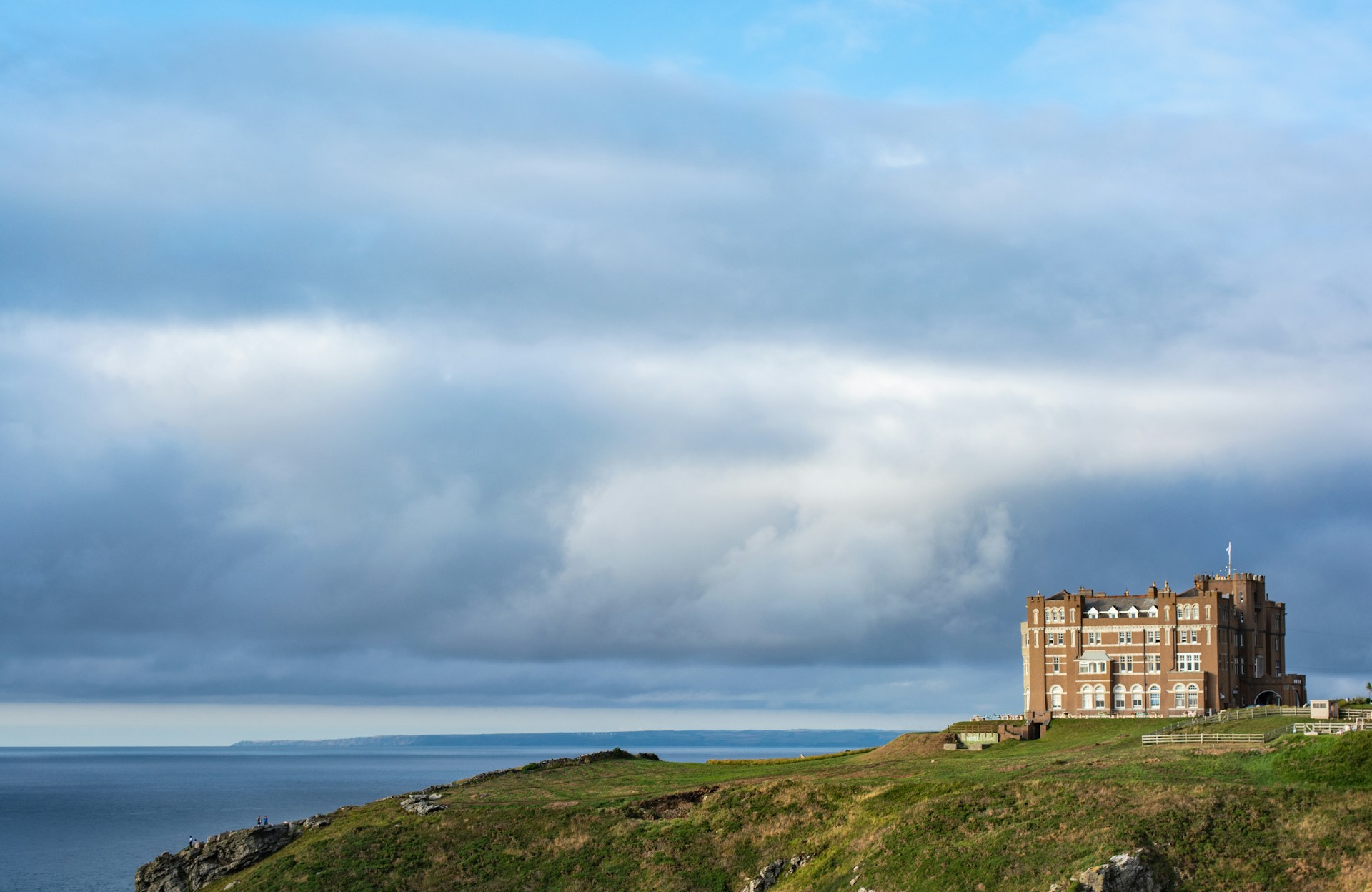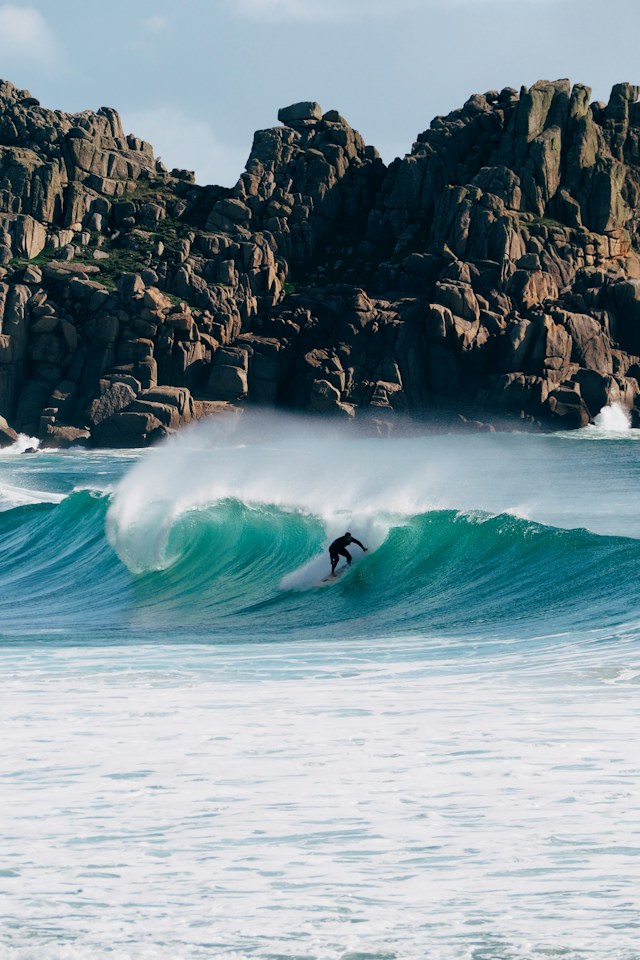Camping Sites Cornwall
Coastal Campsites
On the north coast, popular spots like Perranporth and Newquay have huge campsites just minutes from iconic sandy beaches. Perran View Touring Park outside Perranporth town overlooks the endless golden sands of Perran Beach, whilst offering entertainment and pools onsite. In Newquay, Hendra Holiday Park and Trevelgue Holiday Park offer camping amongst the dunes with direct access to Porth and Watergate Bay’s glorious beaches. Further up the coast, smaller campsites allow you to get back to basics in beautiful natural settings. Treguth Farm outside St Agnes offers a relaxed, eco-friendly site a short stroll from the surf at Trevaunance Cove. Boscreege Camping near Zennor is set amongst wildflower meadows with magical sea views towards St Ives.
Farm Campsites
For a serene, back-to-basics camping experience, Cornwall offers a wonderful selection of farm campsites tucked away in gorgeous countryside settings. These rural retreats provide the perfect antidote to busy coastal sites, with green fields and farms replacing amusement arcades and water slides. Sites like Boscreege Farm near Zennor allow you to wake up to flower-filled meadows inhabited by wildlife, whilst Predannack Farm Campsite on the Lizard Peninsula lets you collect freshly laid eggs to start the day. Further east at Turneworganick Farm near Marazion, enjoy secluded views over fields towards St Michael's Mount. Up north near Bude, Upper Lynstone Farm immerses you in nature with ducks waddling around the camping field and chickens providing a morning wakeup call. On the Roseland Peninsula, Polcampdon Farm's fields overflow with colourful wildflowers in spring, overlooked by a 14th century farmhouse. Far from the crowds, these farm sites exemplify the spirit of camping. Days are spent exploring woods and rambling over stiles without seeing another soul. As dusk falls, owls begin to hoot as campfires crackle under a blanket of stars. For a wholesome Cornish retreat, these farm campsites deliver peace, nature and pure escapism amid the rural landscape.
Glamping and Camping Pods Cornwall
Experience stylish camping with a touch of luxury at Cornwall's many glamping sites. Treloan Coastal Holidays near Falmouth has sea-view shepherd's huts and camping pods in a tranquil farm setting. Near Newquay, Trevenna Escapes offers safari tents with wood burners and comfy beds, ideal for families.
The Scarlet Hotel's eco-friendly site near Mawgan Porth boasts stunning coastal views from its bespoke outdoor hotel suites and luxury canvas lodges. For uber-comfort without the hassle, check into a Great Western or Doghouse pod at Treloan Camping near Falmouth, complete with kitchenettes and ensuite shower rooms.
Eco Campsites
For low-impact, sustainable camping, Cornwall offers a fantastic selection of eco-friendly campsites. These environmentally conscious sites aim to protect the county's fragile ecosystems whilst providing greener camping holidays. At eco campsites like Meadow Farm near Bodmin, renewable energy is generated on-site through solar panels and wind turbines. Facilities like composting toilets, eco showers and recycling stations minimize water usage and waste. Meadow Farm's nature reserve location supports wildlife conservation, with activities like bushcraft teaching campers about local habitats. Other sites such as Penhale Camping near Perranporth use eco-friendly cleaning products and encourage recycling and energy efficiency. Penhale minimises light and noise pollution to avoid disturbing local wildlife like glow worms and bats. Treloan Coastal Holidays near Falmouth was awarded eco-campsite accreditation thanks to its ground source heating, solar showers and dedicated wildlife areas. Through small, thoughtful measures, these eco sites aim to reduce human impact on Cornwall's precious natural environment. By providing sustainable facilities and education, eco campsites allow campers to indulge their love of the great outdoors, whilst protecting it for the future. The perfect choice for environmentally conscious visitors who want to explore Cornwall's breathtaking scenery, without costing the earth.
Camping in St Ives
One of Cornwall's most iconic seaside towns, St Ives draws tourists from across the world with its idyllic beaches, cosmopolitan art scene and picturesque fishing port. Luckily, there are plenty of campsites around St Ives giving easy access to all this pretty harbour town has to offer. Within St Ives itself, local authority-run St Ives Camping is conveniently situated right above Porthgwidden Beach, considered one of the best family-friendly beaches in Cornwall. With direct access to the golden sands from the site, you can spend sunny days relaxing on the beach before exploring the town's cobbled streets and contemporary galleries. Just a short drive from St Ives in Carbis Bay, the multi-award winning Carbis Bay Holiday Park offers fun-packed holidays with a Blue Flag beach, outdoor pool complex and lots of entertainment onsite. Tent camping pitches mingle with glamping options like cosy camping pods. At Hayle just outside St Ives, Tehidy Holiday Park occupies a tranquil woodland setting with tent pitches nestled amongst the trees. The family-run Tremenheere Camping and Caravanning Club site near Lelant possesses fabulous views over St Ives Bay from high up on the hills. Both sites are perfect for countryside camping within a short drive of St Ives. The Ayr Holiday Park at St Ives Bay provides an idyllic base right next to the beach at Lelant. Guests can access facilities at the scenic golf clubhouse including a restaurant, bar and swimming pool.
Wherever you choose to pitch your tent near St Ives, you'll be perfectly placed to get your fill of sensational sunsets, seaside shops, superb surfing beaches and artistic culture in this premier Cornish resort town. Don't miss walking the picturesque South West Coast Path towards Zennor or Carbis Bay, or sampling local fish specialities straight from the harbour at restaurants like Porthminster Cafe. Around every corner is another gorgeous view in this jewel of Cornwall's coastline
Exploring Cornwall’s Beautiful Landscapes
One of the best ways to experience Cornwall's glorious scenery is by walking a portion of the South West Coast Path. This long distance trail hugs the edge of the coastline for over 300 miles, taking in secluded coves, sweeping sandy beaches and towering cliffs. The sections near Tintagel and Boscastle lead past atmospheric smugglers’ coves like Bossiney Haven, perfect for intrepid hikers. Around St Agnes, the coast path climbs up and down the cliffs, culminating in the iconic former tin mining ruins of Wheal Coates teetering precariously on the edge. Down south near Falmouth, the trail snakes along the coastline of the unspoilt Roseland Peninsula, offering sublime maritime vistas.
Cornwall’s assortment of stunning sandy beaches are also a highlight. The vast expanse of Perranporth Beach boasts huge dunes interspersed with rock pools, providing hours of enjoyment for beachcombers. Porthcurno Beach nestles at the bottom of imposing cliffs near Land's End, its tranquil turquoise waters overlooked by the world-famous Minack Theatre. Cyclists following the Camel Trail can stop off at the family-friendly Summerleaze Beach in Bude, whilst Porthgwidden Beach in St Ives charms with its crystal clear waters hugging the harbour walls.
One of the best ways to soak up Cornwall’s unique charm is meandering around its picturesque fishing villages. St Ives, with its maze of narrow cobbled streets and buzzing harbour, captures Cornwall’s quintessential seaside character. Around Lizard Point, quaint villages like Mullion and Flushing seem blissfully stuck in time with tiny harbours and net lofts. Mousehole near Penzance epitomizes Cornish serenity with its cluster of whitewashed cottages sat snugly around the tranquil fishing port.
A Spot of History
Cornwall is strewn with fascinating historical sites that provide a window into the region's rich past. From prehistoric standing stones to the remnants of tin mines that once powered Cornwall's economy, camping here allows you to fully immerse yourself in the area's captivating history.
One highlight is exploring Cornwall's wealth of Neolithic monuments, which were built by some of Britain's earliest inhabitants thousands of years ago. The iconic ruins of Chun Quoit, a large Neolithic burial chamber located near Land's End, date back an astonishing 4,500 years, having been erected around 2,400 BC. This makes Chun Quoit older than Stonehenge and even the Great Pyramids of Egypt. Other prominent prehistoric sites include Lanyon Quoit near Madron, a table-like Neolithic tomb, and the Merry Maidens, a perfectly preserved stone circle next to the sea that legends say was once a group of petrified women. Fogous, or underground chambers, are also found scattered across Cornwall, like the one at Carn Euny near Sancreed that was built between 500 and 300 BC.
Later, between the 18th and 19th centuries, tin mining boom transformed Cornwall, leaving behind a legacy that can still be seen today. At Poldark Mine near Helston you can descend down one of the oldest tin mines in the world, learning how tin shaped Cornwall's fortunes. The dramatic ruins of mines at Botallack cling to the cliffs, showing how miners ingeniously extracted tin from precarious positions. Porthgain on the coast offers a remarkably well-preserved former mining port where you can explore the old engine houses.
Smuggling and piracy have also left their mark on the Cornish coastline. Walking the coast near Falmouth, it's easy to imagine the stealthy night-time activities of 19th century smugglers, who would have used shadowy coves like Owles Hole to sneak in contraband. Further west, Newlyn's coast became known as the 'pirate coast', once attracting real-life pirates like the notorious John 'Eyebrows' Thomas. Prussia Cove near Penzance earned a reputation as a haven for unlawful activity.
Finally, numerous grand houses and castles provide insights into Cornwall's wealthier residents over the centuries. Prideaux Place, a mansion filled with lavish interiors near Padstow, gives a wonderful portrait of upper-class 18th century life. The magnificently preserved Lanhydrock House offers a glimpse into a high society Victorian family. Cornwall's oldest castle, Restormel, sits high on a hill since being built around the 12th century, its walls having witnessed over 800 years of history looking out over the Cornish landscape.
Activities and Attractions in Cornwall
From family days out to adrenaline-pumping pursuits, campsites across Cornwall give you the perfect base to experience the county’s top attractions and activities.
Family Attractions → Cornwall is packed with family attractions to keep kids entertained on holiday. On rainy days, visit family-friendly museums like the Eden Project near St Austell to explore the rainforest biome. Water slides and splash zones at Newquay’s Blue Reef Aquarium combine education with interactive fun. For farm magic, wander through animal enclosures at Dairyland Farm World, or hop aboard the Camel Creek Adventure Park’s thrilling rides and indoor play areas.
National Trust Sites → Cornwall is dotted with National Trust sites where you can experience some of the region's most iconic scenery. The incredible ruins of Tintagel Castle on the cliffs tell the legendary tales of King Arthur. St Michael's Mount, a medieval monastery on a tidal island near Marazion, can be reached by foot along the causeway at low tide. Close by, the ancient mystery of the Men-an-Tol stones makes for a scenic historical ramble.
Surfing and Watersports → Cornwall’s crashing waves and balmy climate have made it the UK’s premier destination for surfing and watersports. Grab a board in Newquay to tackle the legendary breaks at Fistral Beach. Swell conditions also impress at St Agnes’ Chapel Porth, Porthmeor Beach in St Ives and around Bude. As well as surfing, many campsites offer access to coasteering, kayaking, paddleboarding and more.
Walking and Cycling → Explore Cornwall under your own steam by walking or cycling between campsites. Follow miles of paths from the Camel Trail along the River Camel to the coast-to-coast Mineral Tramways route. Many campsites also rent bikes - Wheal Martyn near St Austell is perfectly placed for the Clay Trail and the Eden Project. En route, be sure to stop for a Cornish cream tea!
Adrenaline Activities → Get your pulse racing with adrenaline-pumping activities across Cornwall. You can catch waves at Newquay's Surf Snowdonia inland lagoon or brave the UK's longest zipline at Adrenalin Quarry. Many campsites offer discounted theme park tickets to ride the towering thrill rides at Flambards in Helston. From rock climbing to abseiling and more, Activity Centres at Eden Project and Newquay offer exhilarating outdoor challenges for all ages.
Camping Responsibly in Cornwall
Cornwall's spectacular coastlines, sandy beaches and rural landscapes are precious environments that require careful conservation. When camping in Cornwall there are several ways to minimize your environmental impact and preserve the region's natural beauty for future generations.
One important step is to reduce your carbon emissions from travelling to and around Cornwall as much as possible. Consider public transport or car sharing rather than driving alone. Once at your campsite, walk, cycle or use public transport to get around locally rather than taking the car out each day. Bringing reusable containers, water bottles and shopping bags rather than disposable plastics can also help lower your environmental footprint whilst camping.
When buying food and drink, try to choose locally grown and produced items to cut down the carbon miles. Stock up on supplies from local farm shops, markets and independent shops near your campsite. Always carry reusable bags and refill water bottles. Opting for vegetarian and plant-based options is another great way to reduce your carbon footprint while camping.
Within the campsite itself, respect all rules and guidance to protect local habitats and wildlife. Take care to pitch tents only in designated areas, avoiding delicate plants and ecosystems. Use eco-friendly sunscreen, cosmetics and cleaning products that don't contain harmful chemicals, as these can filter into and pollute waterways. Avoid campfires, fireworks or sky lanterns which can be extremely damaging to animals and nature.
It's essential to take all litter home with you and use recycling points where available. Ensure cigarette butts, sanitary items and wet wipes go in the bin rather than being left on the ground or flushed down toilets where they damage marine environments. Consider a portable composting toilet to avoid chemicals entering Cornwall's rivers and seas.
Sticking to footpaths, cycling routes and public rights of way prevents damage to the landscape. Get involved in beach cleans if you come across litter while exploring the coastline. Most importantly, leave no trace of your visit so that Cornwall's magical beaches, forests, rivers and moorlands remain pristine for all to cherish.

Let us know you agree to cookies
We use marketing, analytical and functional cookies as well as similar technologies to give you the best experience. Third parties, including social media platforms, often place tracking cookies on our site to show you personalised adverts outside of our website.
We store your cookie preferences for two years and you can edit your preferences via ‘manage cookies’ or through the cookie policy at the bottom of every page. For more information, please see our cookie policy.

